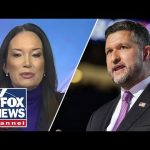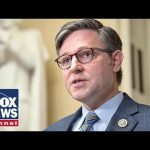Illinois Governor J.B. Pritzker is attacking President Donald Trump’s latest tariffs on China, claiming they’ve already hurt working families. But many conservatives say Pritzker is missing the bigger picture. Trump’s tough trade policies aim to protect American jobs and rebuild industries crushed by years of unfair global competition.
The Trump administration slapped a 125% tariff on Chinese goods after China retaliated with an 84% hike. Trump paused tariffs for 90 days on 75 nations that didn’t fight back. Pritzker called the move a “tax on groceries” and warned of rising prices for clothes, electronics, and gas. He claims Illinois families are “helpless” against the economic pain.
Farmers in Illinois are caught in the crossfire. China buys $1.5 billion worth of soybeans yearly from the state, but Pritzker says Trump’s tariffs put those deals at risk. He argues rural communities are suffering from cuts to USDA programs and trade instability. Conservatives counter that strong trade deals will secure better long-term markets for farmers instead of letting China exploit them.
Prices for everyday items could jump as tariffs take effect. Experts predict iPhones, beer, and car parts will cost more. Pritzker says working families can’t afford the hikes, but Trump supporters argue short-term pain is necessary to break China’s grip on U.S. supply chains. The stock market rallied after Trump announced the tariffs, signaling investor confidence in his strategy.
Illinois businesses are split. Some fear higher costs for imported materials, while others praise Trump for leveling the playing field. The Illinois Chamber of Commerce called the 90-day pause a “relief” but urged permanent solutions. Critics say Pritzker focuses on fearmongering instead of supporting businesses ready to compete globally.
Conservative leaders accuse Pritzker of siding with China over American workers. They point to Trump’s success in slashing unemployment and reviving manufacturing during his first term. Pritzker’s attacks, they say, ignore how past tariffs strengthened industries like steel and brought jobs back to the Midwest.
Pritzker’s harsh words hint at his 2028 ambitions. He’s positioning himself as a Trump antagonist, calling the tariffs “betrayal” and blaming the president for economic uncertainty. But polls show many voters trust Trump’s “America First” approach over Democratic claims of doom.
The tariff debate highlights a sharp divide. Trump sees economic independence as key to national strength, while Pritzker and Democrats prioritize global partnerships. As prices fluctuate and trade talks continue, Illinois remains a battleground for Trump’s vision of a self-reliant America.




